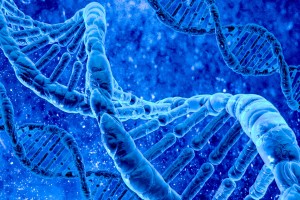
vitstudio/Dollar Photo Club
While the importance of bacteria in the gut cannot be understated, mainstream medicine’s understanding of the role of gut bacteria in health is in a dire need of awakening. I know that I sound like a broken record on this issue, but the stewards of health and disease just do not understand how much of a role bacteria play.
Our local rep for VSL-3 (a very high-dose probiotic that we strongly recommend for inflammatory bowel disease and diverticulitis/osis) has told me that all too many of the pediatric gastroenterologists she visits do not see the value in probiotics or will recommend poor-quality products (such as Florastor, despite the fact that the yeast present in Florastor is not really a true probiotic).
Besides this, antibiotic prescriptions continue to be given for non-bacterial or self-limiting conditions, or broad-spectrum antibiotics are used where narrow spectrum antibiotics are indicated.
It’s time to really put this disconnect into perspective…
Most of society’s understanding of DNA is that it is the root of what we are. Our DNA is the individual information upon which our bodies are built. But recent years have taught us that this is not the entire picture.
Yes, the DNA you are given does not change and was decided at the moment of your conception. BUT, there is this little thing called epigenetic (“epi” meaning “around”) modification. Epigenetic modification refers to the chemical addition of molecules (usually a methyl group) to DNA. This change will affect the way your genes will be expressed.
As an example, you may have the DNA for a full head of brown hair, but due to some stressful event like chemotherapy, your hair may permanently turn grey through epigenetic modification. Your actual DNA is for brown hair, but due to these epigenetic changes, your DNA produces grey hair instead of brown. The way your hair gene gets expressed has been fundamentally changed.
As science has understood its importance, epigenetics has become a rapidly growing field. Along with this growth has come greater understanding of the role epigenetics plays in health and disease. And this understanding has been eye-opening.
It is now well-accepted that experiences even early in life cause epigenetic changes that will increase the risk of chronic diseases like obesity, diabetes, heart disease and cancer. And these changes are (as far as we know) irreversible.
So what affects epigenetic modification? Things like early life stress (emotional, physical, sexual or malnutrition) affect epigenetics. Nutritional deficiencies. Environmental chemical exposure. All the nasty things you can envision can create epigenetic changes.
But what about the bacteria in your gut?
Based on this particular study, it turns out this may be the case. Researchers looked at a group of 8 pregnant women and broke them up into two groups based on the dominant microbiota in their gut (1-Bacteroidetes / Proteobacteria or 2-Firmicutes) and looked at what kind of epigenetic changes were present on their DNA.
When the bacterial family Firmicutes was dominant (a condition that has already been linked to obesity) epigenetic changes linked to an elevated risk of chronic diseases (predominantly cardiovascular disease and specifically to lipid metabolism, obesity, and inflammation) was found.
Let me put this another way: having the wrong blend of bacteria in your gut will, above and beyond any other lifestyle choices you make, increase your risk of chronic diseases AT THE GENETIC LEVEL. Your very DNA changes as a result of this class of bacteria being present.
I don’t think anything can express just how important a positive, stable bacterial flora in your gut is to your overall health and well being like this study does.
What have YOU done for your bacteria today?
